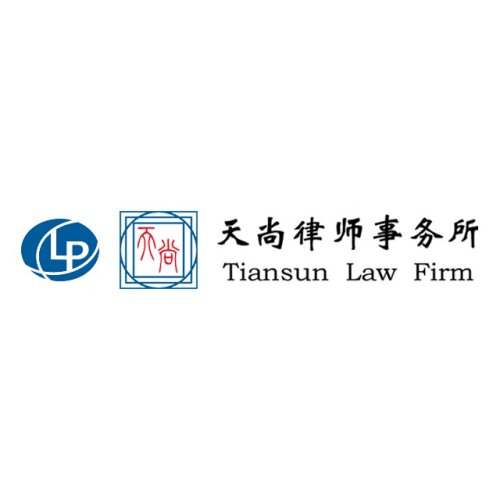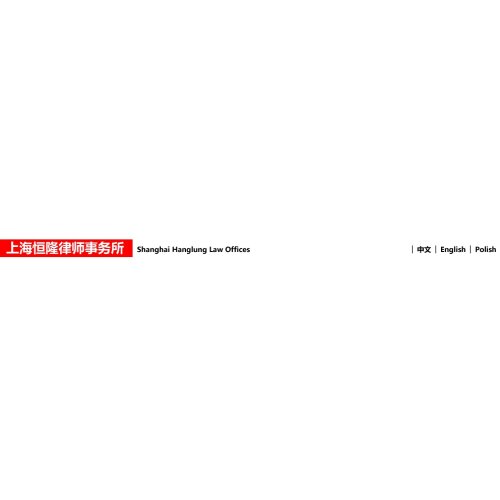Best Lawsuits & Disputes Lawyers in Shanghai
Share your needs with us, get contacted by law firms.
Free. Takes 2 min.
List of the best lawyers in Shanghai, China
China Lawsuits & Disputes Legal Articles
Browse our 1 legal article about Lawsuits & Disputes in China written by expert lawyers.
- Can You Enforce a Foreign Court Judgment in China? A Guide
- China now offers more reliable tools to chase assets, including a powerful Asset Reporting Order that forces judgment debtors to disclose their property or face fines, detention, or even criminal exposure. Enforcing foreign court judgments in China is still harder than enforcing arbitral awards, but recent Supreme People's Court (SPC)... Read more →
About Lawsuits & Disputes Law in Shanghai, China
Legal proceedings in Shanghai, like the rest of China, follow the principles of socialist legislative system. The civil law in China oversees most lawsuits and disputes. This includes small-to-large business disputes, civil disputes, intellectual property right infringements, and others. Trials are usually decided by a panel of judges and in some cases, include people's assessors in a similar function to jury members in the Western legal system.
Why You May Need a Lawyer
Expert legal counsel can be indispensable in navigating lawsuits and disputes in Shanghai, particularly given the unique aspects and complexities of China's legal system. This expertise becomes crucial while handling business disputes, contract disagreements, property disputes, labor disputes, and resolving issues related to commercial transactions or intellectual property rights. A skilled lawyer can provide you with proper advice, represent your interests, and help secure the most favorable outcomes.
Local Laws Overview
The key aspects of Shanghai's local laws relevant to lawsuits and disputes include the Civil Procedure Law, the Contract Law, the Property Rights Law, and the Tort Liability Law. Shanghai, being China's biggest economic hub, also has specific regulations governing trade, commerce, and business-related disputes. Furthermore, Shanghai has its own local intellectual property court that deals with IP related disputes.
Frequently Asked Questions
1. What is the typical timeline for a civil dispute in Shanghai?
Though timelines can vary widely based on the complexity of the case, a standard first-instance civil litigation procedure typically takes between 6 to 9 months.
2. Can foreign nationals file lawsuits in Shanghai, China?
Yes, foreign nationals can file lawsuits. However, they are advised to seek legal representation and translation assistance due to language barriers and unfamiliarity with the local procedures.
3. How does the court system in Shanghai operate?
The court system in Shanghai, as with the rest of China, operates on a three-tier system: Basic People's Courts, Intermediate People's Courts, and the Supreme People's Court. Most lawsuits in Shanghai start at the Intermediate level.
4. What form of conflict resolution is commonly used in lawsuits?
Settlement is strongly encouraged. If settlement fails, mediation and arbitration are commonly used in China, particularly for commercial disputes.
5. Are the proceedings conducted in English?
No, all proceedings are conducted in Mandarin Chinese. Non-Chinese litigants are advised to seek translation and interpretation services.
Additional Resources
You may find resources such as Shanghai Bar Association and Shanghai Arbitration Commission to be helpful. In addition, the website of Shanghai Municipal People’s Government provides details and updates on rules and regulations.
Next Steps
If you are in need of legal assistance in lawsuits and disputes in Shanghai, it is recommended to contact a local lawyer or law firm that specializes in your type of dispute. You may also reach out to the Shanghai Bar Association for aid in finding a suitable lawyer. Preparation of all the necessary documents, evidence, and a clear summary of your issue will make the process quicker and more efficient.
Lawzana helps you find the best lawyers and law firms in Shanghai through a curated and pre-screened list of qualified legal professionals. Our platform offers rankings and detailed profiles of attorneys and law firms, allowing you to compare based on practice areas, including Lawsuits & Disputes, experience, and client feedback.
Each profile includes a description of the firm's areas of practice, client reviews, team members and partners, year of establishment, spoken languages, office locations, contact information, social media presence, and any published articles or resources. Most firms on our platform speak English and are experienced in both local and international legal matters.
Get a quote from top-rated law firms in Shanghai, China — quickly, securely, and without unnecessary hassle.
Disclaimer:
The information provided on this page is for general informational purposes only and does not constitute legal advice. While we strive to ensure the accuracy and relevance of the content, legal information may change over time, and interpretations of the law can vary. You should always consult with a qualified legal professional for advice specific to your situation.
We disclaim all liability for actions taken or not taken based on the content of this page. If you believe any information is incorrect or outdated, please contact us, and we will review and update it where appropriate.
Browse lawsuits & disputes law firms by service in Shanghai, China
Shanghai, China Attorneys in related practice areas.

















